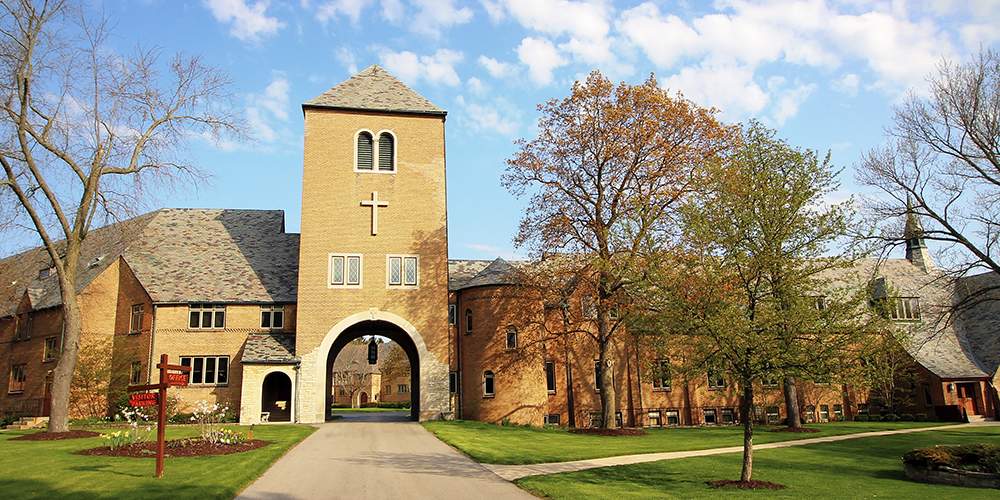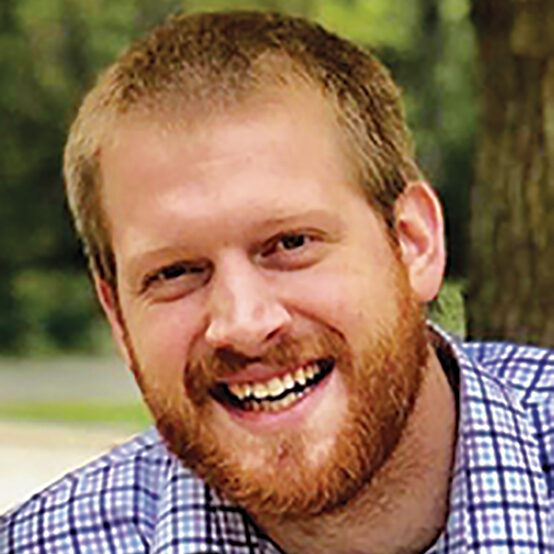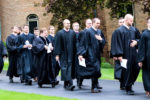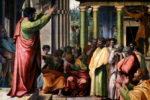 |
Life is busy for your future pastors as they study for the ministry at Wisconsin Lutheran Seminary.
Micah Koelpin
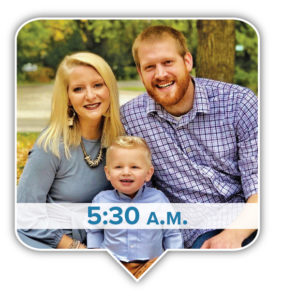
5:30 A.M.—I reach over to turn off the alarm on my phone. It’s 5:30 a.m. I won’t say that I am awake yet, but I head downstairs. After grabbing some coffee, I sit down to read my devotion. It’s a Tuesday morning.
I’m in my final year at Wisconsin Lutheran Seminary, Mequon, studying to be a pastor. I was asked to write about a typical day at the seminary, so I’m writing about this Tuesday. The reason I got up so early is because classes at the seminary start at 7:30 a.m. I like to read my devotion, exercise, and make sure my schoolwork is done before leaving the house. My wife, Hillery, and my son, Zeke, wake up closer to 7.
Being a married student brings its own unique experiences. I live off campus, so I leave early enough to get to class on time. The students who aren’t married live in the dormitories, right next to the classroom building. Once I get to the seminary, I meet up with my friends in the dormitory. I use their room to store my lunch and any books I don’t need. Most of the time I’m there in plenty of time, but sometimes I cut it close.
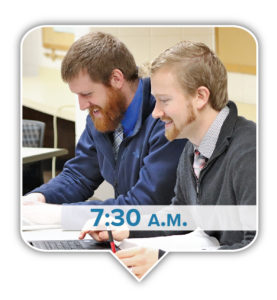
7:30 A.M.—Class is ready to begin. Once we find our spots, we get out our laptops. Every student needs one along with a program that makes Bible study more organized and efficient. Today I also needed a book that I had read the night before, so my desk space quickly fills up. The seminary desks are more like tables that two students share, so I borrow some room from my deskmate, Nick. Classes at the seminary are 50 minutes long. Today my first class is systematic theology.

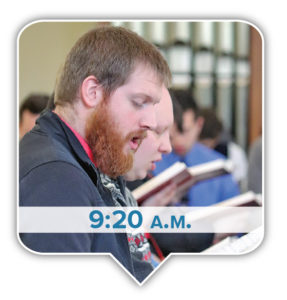
9:20 A.M.—After the first two classes, the whole campus gathers in the chapel for worship. This is a very special time. Not only do we all get together in the same spot, but we also get to worship our God. It’s a unique service because it is usually led by the students. Today, my friend Josh gave the devotion. The seminary livestreams all the chapel services. Watch them at wls.wels.net.
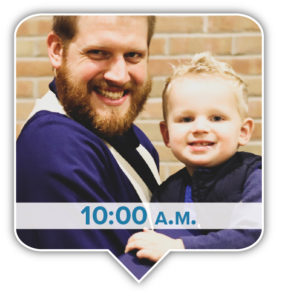
10:00 A.M.—Next is a “flex hour.” This just means that there is no scheduled class. But for me, today is a chorus practice. The Seminary Chorus practices three times a week for our concerts. During this flex hour, some seminarians will study or meet with professors. Others practice an instrument with a group. The student government also meets during this time. I will lead that meeting tomorrow. After the flex hour, it’s time for my final two classes.
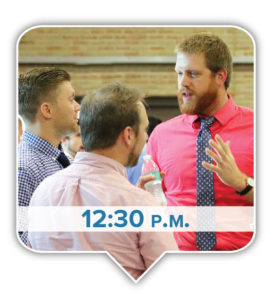
12:30 P.M.—The school day is now over, and like a flash mob, the entire student body files into the cafeteria. I can eat at home, but this time in the cafeteria is important because I get to know all the other students, my future colleagues in the ministry. We break down any barriers through food, humor, and entertainment.
You might be thinking to yourself, They only have four classes? Yes, the day may seem short, but that’s because the seminary keeps the afternoon open so that students can work to support themselves; to pay for their schooling; and, like me, to support their families. Because the seminary does not receive federal money, tuition can be expensive. Generous donations from numerous people throughout WELS help subsidize tuition. This makes it possible for students to afford school. This has been a great blessing to me.
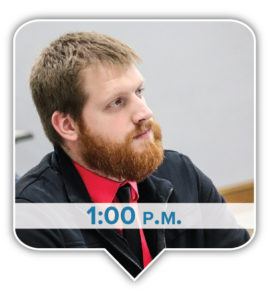
1:00 P.M.—After lunch, I go home to see my family before I go to work. My wife, Hillery, is a nanny and gets to stay at home with our son. I am a senior assistant at a church near the seminary. Today, I visit shut-in members and give them the Lord’s Supper and then make evangelism calls. I should make it home in time for dinner with my family.

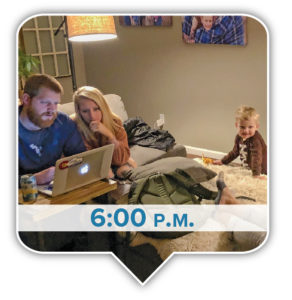 6:00 P.M.—After dinner, I start on my homework. I spend an average of three or four hours on homework each night.
6:00 P.M.—After dinner, I start on my homework. I spend an average of three or four hours on homework each night.
However, tonight my study time is cut short because Hillery and I both have something to do. Most extracurriculars at the seminary take place at night to accommodate work schedules. I am the captain of an intramural volleyball team, so I head back to campus to play. Hillery leads a group for seminary wives who meet to get to know and encourage each other.
Once we get home again, Hillery and I sit and talk about our future. I will be receiving my first call into the full-time gospel ministry in May. This is something that we have waited a long time for, so we both are excited and filled with questions: Where are we going? What kind of church will we be at? Who will we get to meet? The Assignment Committee decides my first call. It is a little nerve-racking to think that we are going to move our little family soon and we have no idea where we will be going. But we are comforted knowing that God is guiding our lives and that he will put me where I will best use my training and my gifts to serve his kingdom. We don’t have to worry because it is in God’s loving hands. We end our conversation by giving all our worries and requests to God in prayer.
It might have been just a Tuesday, but I did have a lot to do. I hope it gives you a taste of what it is like at Wisconsin Lutheran Seminary, which is your seminary. Even if you have never been here, I am sure your life has been affected by someone who has.
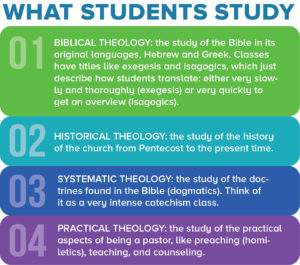
Learn more at wls.wels.net about Wisconsin Lutheran Seminary. The seminary is also featured in April’s edition of WELS Connection. Want to hear more from Micah Koelpin? Watch Forward in Christ‘s interview with him: A closer look at life as a seminary student.
A change of pace
In between the first and second semester, students participate in Winterim. This two-week session gives students an opportunity to study in areas of personal interest not normally part of the curriculum.
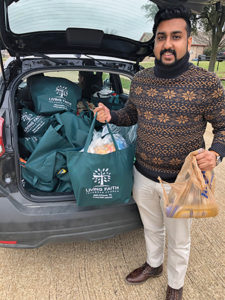 Micah Koelpin, for example, worked on a directed research project to create a Bible information class that could be used online. Two groups of students headed to Texas, where they conducted street evangelism, interviewing, and data gathering, as well as worked on a strategic planning process that shows different ways to begin or enhance a congregation’s outreach. At Living Hope, Midlothian, Texas, part of the students’ work was to assemble and distribute almost 3,000 reusable totes for a local food drive and then collect the donations several days later (pictured). Other students traveled to Colombia for Spanish immersion.
Micah Koelpin, for example, worked on a directed research project to create a Bible information class that could be used online. Two groups of students headed to Texas, where they conducted street evangelism, interviewing, and data gathering, as well as worked on a strategic planning process that shows different ways to begin or enhance a congregation’s outreach. At Living Hope, Midlothian, Texas, part of the students’ work was to assemble and distribute almost 3,000 reusable totes for a local food drive and then collect the donations several days later (pictured). Other students traveled to Colombia for Spanish immersion.
“Winterim provides a nice change of pace for both students and faculty,” says Earle Treptow, president of Wisconsin Lutheran Seminary. “Students who go on a mission trip—and almost every student will during their time at the seminary—gain invaluable experience in engaging the community. Those who participate come back with an increased commitment to preparing themselves for service as pastors.”
Author: Micah Koelpin
Volume 107, Number 04
Issue: April 2020

